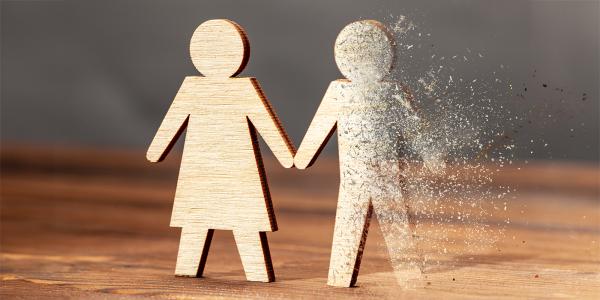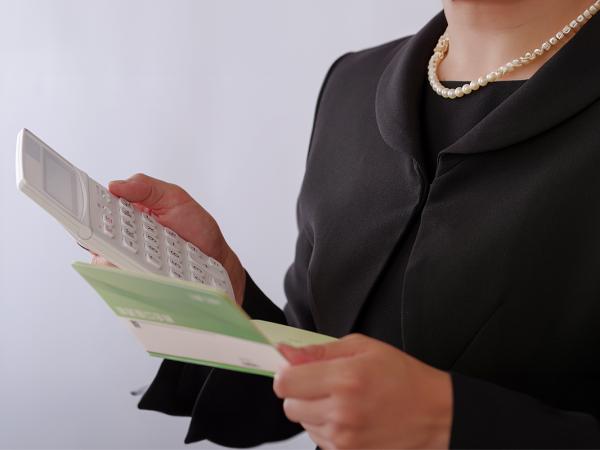Death of a spouse or civil partner
On this page, we tell you what you need to do in relation to tax matters if your spouse or civil partner dies. We also set out some of the common areas where problems can occur.

Content on this page:
Telling HMRC
You may need to contact HMRC, either directly or through the tell us once service.
Impact of the death on your state pension and benefits
If your spouse or civil partner dies, this may affect your state pension entitlement. In some situations, you may be able to claim more state pension. The rules for inheriting or increasing state pension from a spouse or civil partner are explained on GOV.UK.
Importantly, if you do get a new, or extra, state pension as a result of your spouse or civil partner’s death, you will need to make sure that HMRC are aware of the change so that your own tax position is correct.
You may also be entitled to any extra state pension your spouse or civil partner was entitled to because they put off claiming (deferred) it when they reached state pension age. There is more information on inheriting a deferred state pension on GOV.UK and information in our pensions section about tax on a deceased spouse’s (or civil partner’s) state pension lump sum.
There is also a more detailed Department for Work and Pensions (DWP) guide to what happens if a person dies while deferring their state pension on GOV.UK.
If you are widowed, you may also be able to claim bereavement benefits. There is more information on our page State benefits on death.
Impact of the death on your tax position
Following the death of your spouse of civil partner, your tax position might change – especially if you look at your overall tax position as a household. Your late spouse or civil partner will have had a personal allowance to reduce the amount of tax they paid on their income. You have a personal allowance as well. So, between you, you could previously potentially have had twice as much income as a household as you can now without paying tax.
This change can be particularly noticeable if your late spouse or civil partner was a pensioner and, on top of your own income, you now ‘inherit’ some element of extra private or state pension income.
It is very important to make sure HMRC are aware if you start receiving any income or an increased amount of income, so that you do not end up underpaying tax. Read on for more information.
Death benefits
If your spouse or civil partner was employed at the time of their death, they may have been a member of a scheme run by their employer that pays out death benefits (a kind of life assurance). These funds are normally tax-free. You should contact any employer to advise them of the death and ask about any benefits.
Also, if your spouse or civil partner had been a member of a pension scheme before they died, but had not already begun to draw their pension, then it is likely that the pension scheme will pay out some form of death benefits, or that there will be a fund left behind that beneficiaries can take money from. This will be the case whether or not the pension scheme was linked to an employment. The trustees of the pension scheme often have discretion (in other words they can choose) as to who receives the death benefit, although they will take into account any wishes expressed by the deceased and what family members or dependants survive them.
Bear in mind that any lump sum you receive may affect your entitlement to state benefits and may also generate income that may become taxable (see below).
You can read more about pension and life insurance policies on our page Pensions and life assurance on death.
Savings interest
You only need to pay tax on your savings income if it exceeds your personal savings allowance. Like the personal allowance situation noted above, this might be an issue to watch out for if you have inherited savings from your late spouse or civil partner that pay interest.
Your personal savings allowance, if you are a basic rate taxpayer, allows you to receive up to £1,000 in a tax year without any tax being payable. Your spouse or civil partner would also have had a personal savings allowance, so – between the two of you – you may have been paying no tax on savings income. But once you start to receive the combined income in your sole name, you will need to check that you are not due to pay tax, or whether the additional savings interest you have acquired is covered by, for example, the zero per cent starting rate on savings.
You can read more about the taxation of savings on our page Tax on savings and investments.
Other income
If your spouse or civil partner dies, as we have explained, you may get extra money from pensions or savings for example. If you receive extra money, this may mean you have to pay more tax.
There is a guide on GOV.UK explaining what income you must report to HMRC, and what income they should already know about. However, even if HMRC should know about changes to your income (such as an increase in state pension, or receipt of a spouse’s pension), sometimes the information does not get through, or errors can occur.
Check your tax to make sure that all of your new sources of income are included. If you do not complete a tax return each year, check your PAYE codes carefully and contact HMRC if there is anything you do not understand or if you think something is incorrect or missing.
Tax allowances
As well as your income changing, the amount of your allowances (that is, the amount you do not pay income tax on), may also change if your spouse or civil partner dies.
Up until your spouse or civil partner’s death, you may have claimed other allowances or transferred allowances between you which may change after death. For example, you may have claimed to give up part of one of your personal allowances so that the other receives a tax credit (the marriage allowance). In that case, the last year of claim will be the year in which the death occurred. For that year, assuming all the other conditions are satisfied the marriage allowance will apply, but the person who gave up part of their personal allowance will have it reinstated.
Claims to the marriage allowance are allowed in cases where a partner has died before the claim is made. Such claims can be backdated by up to four years provided all other conditions for the allowance are met. If your deceased spouse or civil partner had the lower income, the person responsible for managing their tax affairs (the executor or personal representative, if this is not you) will need to contact HMRC to make the claim.
If one of you was born before 6 April 1935, you may have claimed the married couple’s allowance (MCA). More information on this, including what happens on death, is given in our page Married couple’s allowance.
If your spouse or civil partner was claiming blind person’s allowance (BPA) and they did not have enough income to use up the allowance, you can ask HMRC to transfer the rest of the BPA for that tax year to you. There is more information on the BPA and how to transfer it our page Blind person’s allowance.
Individual savings accounts on death
On the death of your spouse or civil partner, you can inherit an additional ISA allowance equal to the value of your spouse or civil partner’s ISA savings at the date of their death. The additional allowance will not count towards your normal annual subscription limit. Broadly this would allow you, if you wish, to transfer your spouse’s or civil partner’s ISA into your own ISA.
You may not use the additional allowance to subscribe to a junior ISA.
To be eligible, you must have been living together at the time of your spouse or civil partner’s death. Living together means that you must not be separated by a court order, by a deed of separation, or as a matter of fact in circumstances in which the separation is likely to be permanent. If, for example, one of you had moved into a care home, you would most likely still be considered as living together for these purposes.
You must also be eligible to subscribe for an ISA in your own right – this means that you must be resident for tax purposes in the UK and must be aged 16 or over for a cash ISA (18 or over for a stocks and shares ISA). If you are not resident in the UK, you must be a Crown servant, or the spouse or civil partner of a Crown servant.
Time limits also apply – normally you have to make a subscription to an ISA to use this additional allowance within three years of the date of death.
You can find out more about inheriting an ISA on GOV.UK.
Dealing with your late spouse/civil partner’s tax affairs
It is usually down to the deceased’s personal representative (by this we mean the executor of their will, or their administrator if they died without a will) to sort out their tax affairs. The personal representative may be you, or it may be a solicitor, another relative or family friend.
If it is you, you can use an agent to help you deal with some of the tax affairs of the estate if you do not feel confident to deal with them yourself. Their fees are paid out of the estate.
You can read about dealing with the deceased’s tax affairs to date of death on our page Income tax and capital gains tax up to the date of death.
You can read about dealing with any income or gains that arise during the estate’s administration period on our page Tax on income and gains after death.
Inheritance tax
We give an overview of inheritance tax (IHT) on a death, including the rules around spouses or civil partners, on our page Inheritance tax.
Further information and help
HMRC have a step by step guide that provides information for a surviving spouse or civil partner.
If you are concerned about what will happen to your pension income after the death of your spouse or civil partner, you may be able to find assistance from MoneyHelper, a government service providing financial information, including guidance on pensions.
For further sources of information and support, see our separate page Tax help on bereavement, trusts and estates.



